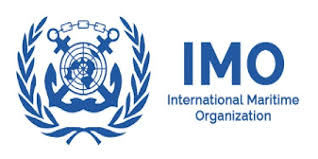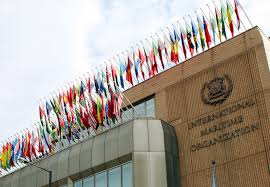Recently, the Honourable Minister for Marine and Blue Economy expressed optimism that with the setting up of the basic needs to develop the nation’s maritime industry in line with recognized global best practices, Nigeria will seek Category “C” membership on the Council of International Maritime Organisation (IMO)
He was ably supported by the Director General of the Nigerian Maritime and Safety Agency (NIMASA) who assured that no stone will be left unturned to ensure success in the quest for IMO Category C membership at the next elections.
But a few Nigerians in the maritime sector have queried the desirability of Nigeria’s Nigeria’s quest for membership of the IMO Council. Similarly, some have queried Nigeria’s interest in the Security Council of the United Nations. If the other nations can be in such Councils and positions, why not Nigeria? It is a truism that it is better to be within the fence and on the table when important matters are discussed than to be outside, waiting for third-party information.
There are numerous advantages the IMO Council membership offers. The categorisation of the IMO Council into A, B, or C does not make one inferior to the other. The Council is elected by the Assembly for a two-year term beginning after each regular session of the Assembly. The Council is the Executive Organ of IMO and is responsible, under the Assembly, for supervising the work of the Organization. Between sessions of the Assembly, the Council performs all the functions of the Assembly, except the function of making recommendations to Governments on maritime safety and pollution prevention which is reserved for the Assembly by one of the articles of the Convention.
Nigeria’s membership of the Council would impose greater responsibilities on the country in terms of keeping to international maritime safety standards. It also puts the country in a vantage position to know first-hand the latest innovations and products in the maritime sector. More importantly, Nigeria’s membership will strengthen Africa’s representation in the international body. It is unsavoury that Kenya is the only African country in a Council of 40 members.
The purposes of the IMO are “to provide machinery for cooperation among Governments in the field of governmental regulation and practices relating to technical matters of all kinds affecting shipping engaged in international trade; to encourage and facilitate the general adoption of the highest practicable standards in matters concerning maritime safety, the efficiency of navigation and prevention and control of marine pollution from ships”. The Organization is also empowered to deal with administrative and legal matters related to these purposes.
Safety was and remains IMO’s most important responsibility. IMO introduced a series of measures designed to prevent tanker accidents and minimize their consequences. It also tackled the environmental threat caused by routine operations such as the cleaning of oil cargo tanks and the disposal of engine room wastes – in tonnage terms a bigger menace than accidental pollution.
According to DG NIMASA, “We at NIMASA have met with the IMO technical team and have commenced work on all identified grey areas so that Nigeria can address the gaps identified during the last audit by the IMO”. We have also commenced the process of effective communication with other member states using the IMO GSIS platform, among others. While we at NIMASA focus on the technical aspects of the preparations, our supervising Ministry will provide the political will to guide Nigeria back to the Council at the IMO.”. He stated.
Interestingly, the IMO has adopted amendments to expand the size of the IMO Council to 52. Amendments to the IMO Convention will enlarge the IMO Council to 52 from 40 Member States. Mobilisation is ongoing for Member States of the International Maritime Organization (IMO) to accept the amendments. This is to reflect the growing membership of IMO. That is a window of opportunity to boost Nigeria’s chances of getting into the Council.
It would be an opportunity to strengthen industrial relations between the different categories of workers in the maritime sector like the Dockworkers and Seafarers and the regulatory agencies, especially NIMASA. There are other benefits and opportunities for peer review. There will be exposure to tailored products and services obtainable in other climes, especially from those countries in Categories A and B.
Council Members for the 2024-2025 Biennium
The 33rd Assembly elected the following States to be Members of the Council for the 2024-2025 biennium: Category (a): 10 States with the largest interest in providing international shipping services namely China, Greece, Italy, Japan, Liberia, Norway, Panama, the Republic of Korea, the United Kingdom and the United States. Category (b): 10 States with the largest interest in international seaborne trade namely Australia, Brazil, Canada, France, Germany, India, Kingdom of the Netherlands, Spain, Sweden and the United Arab Emirates and Category (c): 20 States not elected under (a) or (b) above, which have special interests in maritime transport or navigation and whose election to the Council will ensure the representation of all major geographic areas of the world namely Bahamas, Bangladesh, Chile, Cyprus, Denmark, Egypt, Finland, Indonesia, Jamaica, Kenya, Malaysia, Malta, Mexico, Morocco, Peru, the Philippines, Qatar, Saudi Arabia, Singapore, and Türkiye.
The amendments to the IMO Convention will expand the size of the Council to 52 Members from 40; extend the term of its members to four years; and recognize three additional language texts as authentic versions of the IMO Convention. The move to expand the Council reflects the increasing IMO membership over recent decades. It will support the attainment of a representative, balanced, diverse, and efficient Council, that can support the interests of the whole membership and ensures the representation of all the major geographic areas of the world. Two-thirds of the IMO Membership, or 117 Member States (based on the current membership of 175 Member States) is required for the amendments to come into force.
Functions of the Council
The functions of the Council are to: coordinate the activities of the organs of the Organization; consider the draft work programme and budget estimates of the Organization and submit them to the Assembly; receive reports and proposals of the Committees and other organs and submit them to the Assembly and Member States, with comments and recommendations as appropriate; appoint the Secretary-General, subject to the approval of the Assembly; enter into agreements or arrangements concerning the relationship of the Organization with other organizations, subject to approval by the Assembly.
Nigeria should be supported by all and sundry in her aspiration for the IMO Council position. Membership of the Council brings in tow several advantages to boost and strengthen our maritime sector. And, the potential to open windows of bilateral technical partnerships with the developed economies and enhance trade relations between Nigeria and other nations.



More Stories
The Trouble with Nigeria’s Healthcare System
Ekiti, Oct 27: Date with Destiny!
Governor Seyi Makinde’s Terse Statement on the Gale of Defections Across Nigeria